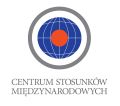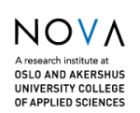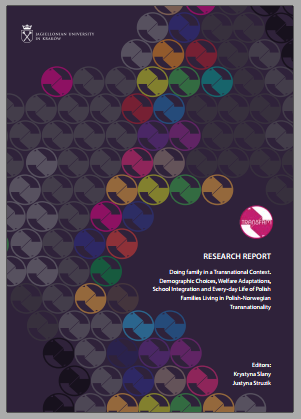Project Objectives
This international and interdisciplinary project sets out to fill an important void within a broader area of social research, bridging the issues concerning Polish-Norwegian migrants and their families operating in two locales. In specific terms, this study aims to fulfill the following goals:
- By employing an intersectional perspective (sensitive to individual characteristics of gender, age, life-cycle, family type and social class), we wish to identify key transnational and/or integration strategies adopted by migrants and their families, including seeking and receiving institutional support both in their home-origin in Poland and in their destination country - Norway;
- We plan to explore the specificities of largely male-dominated migration from Poland to Norway, especially in regards to masculine modes of adaptation and family practices abroad;
- Focusing on policy-relevant identification of barriers and problems encountered by Poles in their attempts at integration with Norwegian society, we will look at broader aspects of social resources' access, civic participation and sense of belonging;
- While looking at Polish transnational families, we want to determine main strategies of maintaining family ties, as well as list issues surrounding the continuity of the family (on the level of various members 'doing transnational family'); furthermore, we wish to contribute into the general understanding of re-defined (parental and other) roles and relationships within transnational family contexts;
- Filling the general evident void in academic/policy/social research and knowledge of lives of Polish families in Norway, we will elaborate on (1) Polish children functioning in Norwegian public institutions (particularly in educational context of schools and kindergartens), and (2) self-organizing and activism of Polish migrants in Norway (exploring clubs, associations, support-groups, religious communities and alike);
- By including return-migrants in our study, we will pinpoint re-integration problems faced by migrants (both adults and children) who are re-integrating into Polish society upon their return;
- We will not only shed light on Norwegian policies concerning reception of migrants from Poland and beyond, but we hope to derive current and relevant policy recommendations, mainly pertaining to local and educational policies that need to be revised or introduced in both countries in question;
- On a practical level, our aim is to prepare and execute workshops for Norwegian social workers, in order to facilitate their cooperation with migrants, particularly in the areas of family-relevant issues and/or education. Similarly, we will be issuing a pilot-program of inter-cultural education workshops for Polish schools accommodating children of migrants and return migrants.
- All project outcomes are framed around policy-implications and dissemination of research results among the key audiences, both academic and institutional, in the two countries in question.








